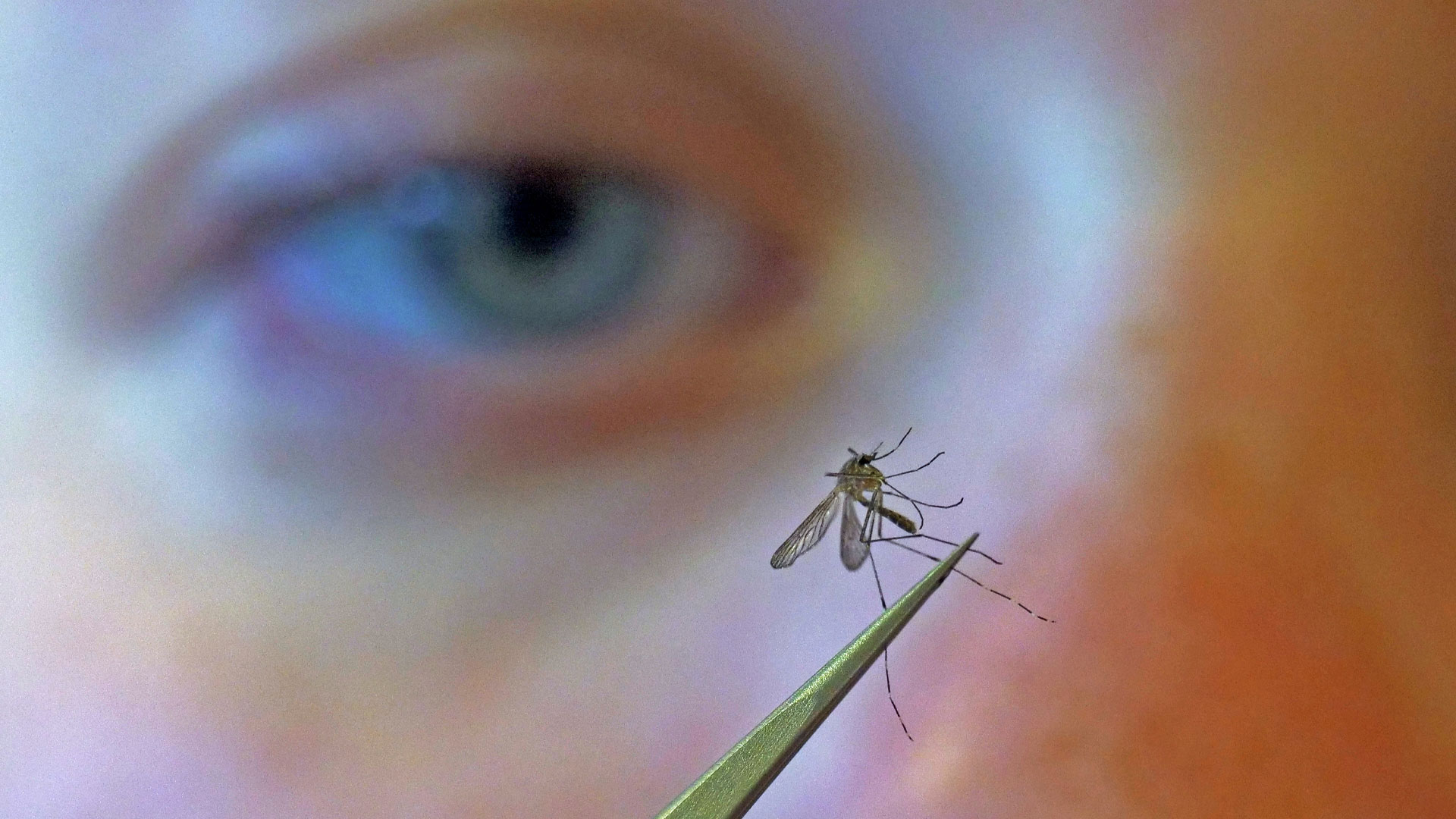A DEADLY mosquito virus is terrorizing a US town after another confirmed case has officials asking people to stay indoors to avoid the big eradication measures.
It is the third postive test for Eastern Equine Encephalitis virus (EEE) in Massachusetts this year.
1
EEE is a rare but potentially fatal disease that is spread through infected mosquito bites.
An Acton, Massachusetts man tested positive for the virus, with state and local officials announcing the diagnosis on Thursday.
The man was in his 70s and was exposed in central Middlesex County, according to the state Department of Public Health, per independent television station WHDH.
The town of Acton said crews will do weekly anti-mosquito spraying through the end of September and encouraged residents of affected communities to limit outdoor activities.
Officials also said the Acton Board of Health will meet on Monday to discuss further plans to protect residents.
Massachusetts officials track EEE cases and provide risk-level warnings to towns across the state.
“Today’s announcement of additional West Nile virus and Eastern equine encephalitis cases makes it clear that mosquito season is not over,” said Public Health Commissioner Robbie Goldstein in a statement Thursday, WHDH reported.
“It is essential that residents continue to use mosquito repellent with an EPA-registered active ingredient every time they are outdoors.
“We also strongly recommend that residents and towns in areas at high risk for EEE reschedule their evening outdoor events to avoid peak mosquito biting hours.”
In addition to Acton, the Department of Public Health raised the EEE risk level to high in the Massachusetts towns of Ayer, Boxboro, Carlisle, Littleton, and Harvard, according to WHDH.
It also raised the risk level to moderate in Bedford, Berlin, Billerica, Bolton, Chelmsford, Clinton, Concord, Framingham, Groton, Lancaster, Lincoln, Shirley, Stow, Tyngsboro, Wayland, and Westford, the outlet reported.
Massachusetts has also dealt with seven cases of the mosquito-spread West Nile Virus in 2024.
The Central Massachusetts Mosquito Control Project (CMMCP) issued information on spraying locations and staying indoors.
CMMCP said people do not need to relocate, as the pesticides pose low risks to human health.
Eastern Equine Encephalitis (EEE) symptoms
Eastern Equine Encephalitis (EEE) is a rare but deadly virus that is spread through mosquito bites.
There are about 11 annual cases reported in the US, according to the CDC.
Symptoms include:
- High fever
- Muscle pain
- Altered mental status
- Headache
- Meningeal irritation
- Photophobia
- Seizures
However, people can still take steps to lessen their pesticide exposure.
CMMCP encourages residents to remain up-to-date on announcements about spraying in the local media.
It also advises staying indoors during the spraying in the immediate area for 15 to 20 minutes to enable the pesticide to drift through the area.
Those with chemical sensitivities or preexisting health conditions may want to contact their doctor “and take special measures to avoid exposure.”
People should make sure street-facing windows are shut and turn off the “outside air” setting, if applicable, on window air conditioners when spraying is occurring in the immediate area.
Since central air units do not take in outside air, it is okay to leave them on, CMMCP says.
Residents may open their windows 15 to 20 minutes after the spraying is complete.
DEADLY DIAGNOSIS
The new measures come as a father of four was recently diagnosed with Eastern equine encephalitis, West Nile Virus, and St. Louis encephalitis.
The U.S. Sun previously reported that a single mosquito bite gave Joe Casey, 54, all three diseases.
Casey’s sister-in-law, Angela Barker, later told CBS affiliate WAFB that even the CDC was unsure which virus made the New Hampshire resident sick.
“He was positive for EEE, for West Nile and St. Louis encephalitis, but the CDC or the infectious disease doctors, they don’t know which one is making him this sick,” she told the outlet.
According to Barker, Casey first reported not feeling well early last month but was not admitted to the hospital until more recently.
She said doctors reported swelling in his brain which has rendered him unable to speak.
“My brother-in-law is not a small man, and to see someone that you love be as sick as he is and not be able to talk, to move, to communicate for over three weeks is terrifying and gut-wrenching,” Barker said.




